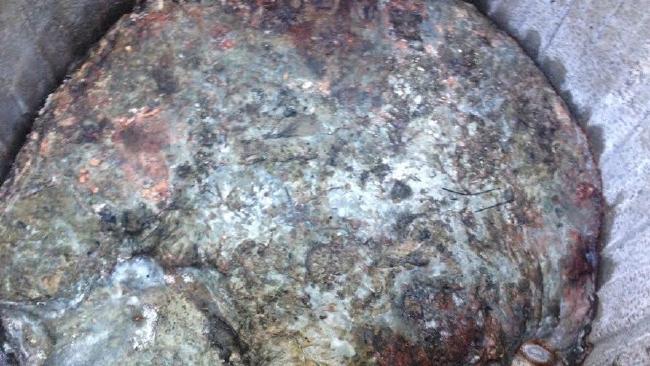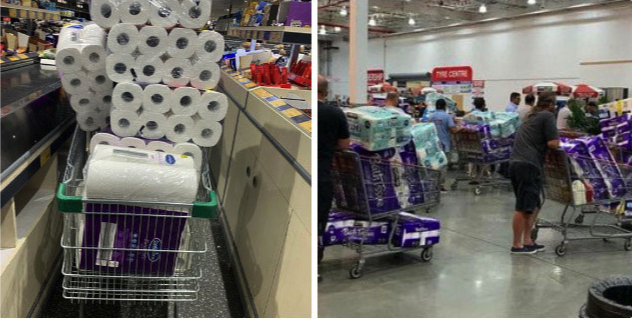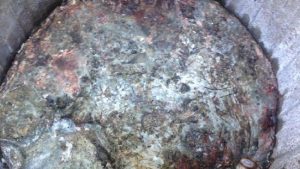Paper towels, Kleenex, and flushable wipes are not substitutes for toilet paper. Toilet paper is designed to dissolve in water. Paper towels, Kleenex, and wipes hold together when they get wet. If you flush these products, in little time, you could find it impossible to flush your toilet. Getting a plumber to fix that could become difficult – and expensive. Despite their name, ‘flushable wipes’ are not flushable. I have written about this subject periodically in my tenant newsletter over the years. Flushable wipes cause an enormous amount of damage every year to people’s plumbing and to city sewage treatment plants. Flushable wipes and paper towels combine with kitchen grease (something else you shouldn’t flush) in sewer pipes to create ‘fatbergs.’ Some fatbergs weigh tons and can only be removed by tearing up a street. One especially large fatberg in a sewer line in London was bigger than a city double-decker bus. There’s a picture below of a fatberg that weighed over a ton. As you probably know, some people are buying huge quantities of toilet paper right now, but toilet paper is not sold out everywhere, and the price of it is not going up. I saw people at Costco with huge quantities of toilet paper in their carts – and nothing else. If these people were afraid that necessities were going to become unavailable, and they were thinking rationally, they would have bought food too, not just toilet paper. However, that’s the nature of panic buying. It’s never rational.

WHY ARE PEOPLE HOARDING TOILET PAPER?
As soon as this epidemic began, stories began circulating on social media web sites claiming that most of the toilet paper used in the U.S. is imported from China and that because China shut down its factories, the U.S. would soon be running out of toilet paper. Through Facebook and Twitter, these stories were repeated countless times. This led to the panic buying of toilet paper that we see today. However, the United States does not import toilet paper from China. Over 90% of the toilet paper sold in the United States is made in the United States. The rest comes from Canada and Mexico. The United States is net exporter of toilet paper, and we export a lot of it. The United States is the 3rd largest exporter of toilet paper in the world. This panic buying of toilet paper is not China’s fault. Take a look at the toilet paper in your home. You will probably never see a package of toilet paper in your life that says: “Made in China” on it.


